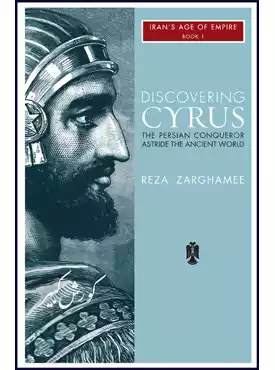
Discovering Cyrus: The Persian Conqueror Astride the Ancient World
Robert W. Lebling
Reza Zarghamee
2013, Mage Publishers, 978-1-93382-338-6, $85 hb.
Westerners know ancient Persia mostly through the eyes of its enemies, the Greeks. For that reason, our view of the Persians is largely colored by that relationship: We generally see them as militaristic, imperial, cruel and exotic—like the caricatured emperor Xerxes in the movie The 300. This book is about Xerxes’s grandfather, Cyrus the Great, whom even the Greeks acknowledged as an exceptional leader. Xenophon’s Cyropaedia (Education of Cyrus) cites the progressive, humanitarian statecraft of Cyrus, portraying him as an ideal prince. This Greek work was quite popular in 18th-century Britain and America, and copies survived in Thomas Jefferson’s library. Zarghamee goes far beyond the Cyropaedia, tracking down just about everything known about Cyrus and shaping it into a well-written narrative of his life. Cyrus’s military achievements were indisputable: He built a standing army out of the Persian tribes and conquered foes including the Babylonians, creating the Achaemenid Persian empire. But he was more than a general. Cyrus showed great tolerance of other peoples and faiths. He allowed the exiled Jews of Babylon to return to Jerusalem and rebuild their temple. His life is worth studying, as Zarghamee ably shows.
You may also be interested in...

Essays Unpack the Evolving Hajj and Umrah Experience
This volume of essays juxtaposes historical first-hand narratives of Hajj and Umrah journeys with oral interviews of contemporary pilgrims to show the transformative power of storytelling.
Archaeology and Geology of Ancient Egyptian Stones—Book Review
In categorizing the stones the ancient Egyptians used, author James A. Harrell unites geology, archeology and cultural history in one monumental reference.